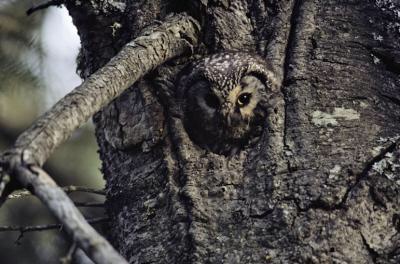When we look at the ecological catastrophe, we fail to see that it's already begun. Simply asking the question, “Has the ecological catastrophe begun yet?” is a signal that we're well past the beginning. We're on the inside of something that becomes visible to us as it reveals it has always enfolded us.
In Elizabeth Kolbert's book, “The Sixth Extinction”, instead of the dire warnings and hysterical laments about the end of the world, we see a calm journey to the places around the earth where species are in the late stages of extinction. Kolbert bears witness as the scientists around her record the effects of the rapid change in habitat. The life forms in these landscapes have deep ties to the slow moving patterns of the earth. As climate change accelerates, these ties are cut and whole species are set adrift.
The prose style of Kolbert's book is a smile of recognition; like the smile of someone saying a final goodbye to a loved one. The smile of someone who has experience loss before. It seems the most straight forward way of acknowledging our co-existence with other beings is at the moment when they're about to disappear forever. Kolbert is a calm witness; she says goodbye to individual life forms and whole species on our behalf.
Humans fancy themselves as highly adaptable. We can look around the world and see the varied and extreme conditions where humans have made a life. We're so quick that we believe we're exceptions. Other species may have a deep tie to the slow moving patterns of the earth, but we can a adapt to any pattern. It's this adaptability that defines us a species. Throughout our history we've looked for the thing that separates us from the animals, that thing that makes us special creatures on this planet. For a time we were the rational animal, our ability to reason set us apart. Now it's our belief that no matter what happens to the biosphere, we can adapt. Even if 90% of all other life forms were to suffer extinction, we could still make a go of it. Our existence is independent of the state of the biosphere or planet
The anthropocene is the unconscious effect of the sum total of human action on the geology and climate of the planet. The biosphere, thus changed by us, now turns and taps us on the shoulder. What was a deep, subtle and almost invisible power moving slowly in the background has emerged in the foreground. Like an unconscious thought made conscious, we believe that we can tame global warming with the power of our reason in the clear light of day.
Like Victor Frankenstein, we sit alone in our lab, attempting to reanimate a species, repair a damaged habit, stitch together enough of a biosphere to support the life forms we deem important. It's perfectly reasonable.
Comments closed



